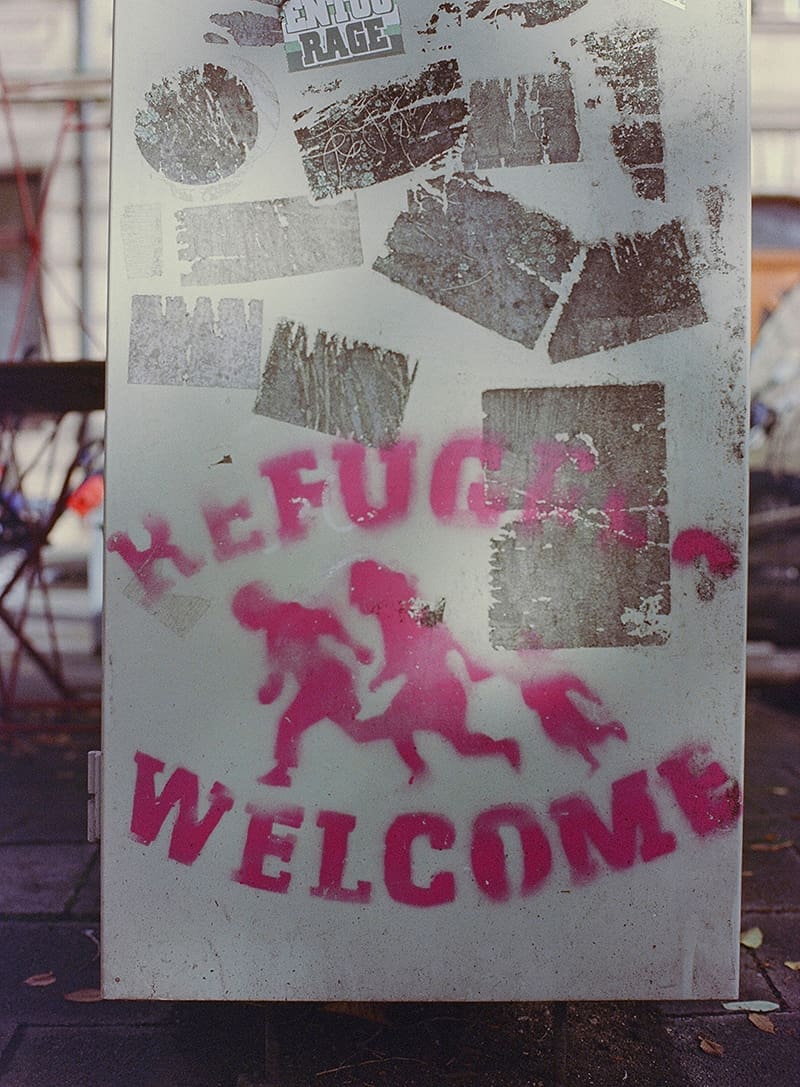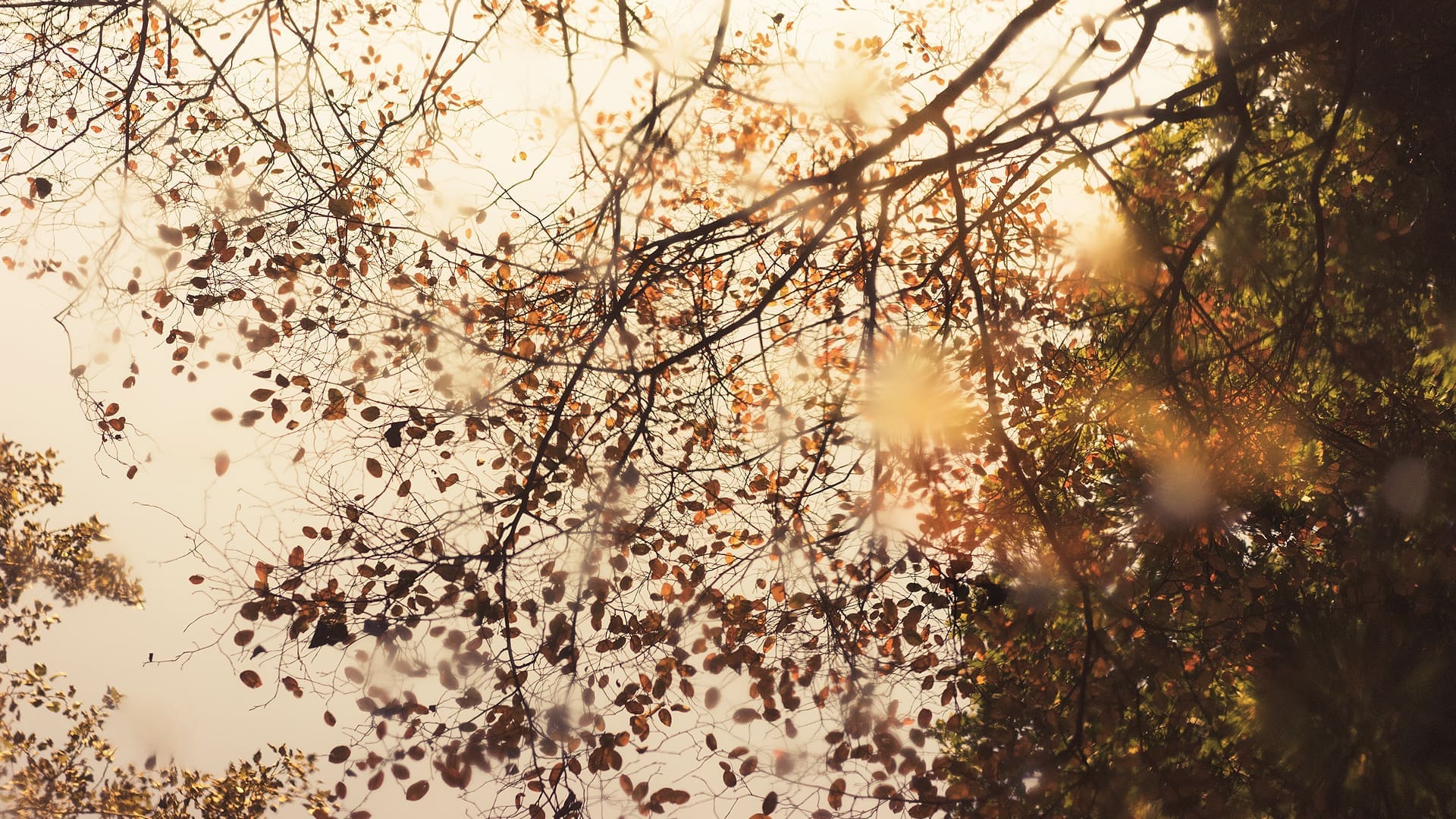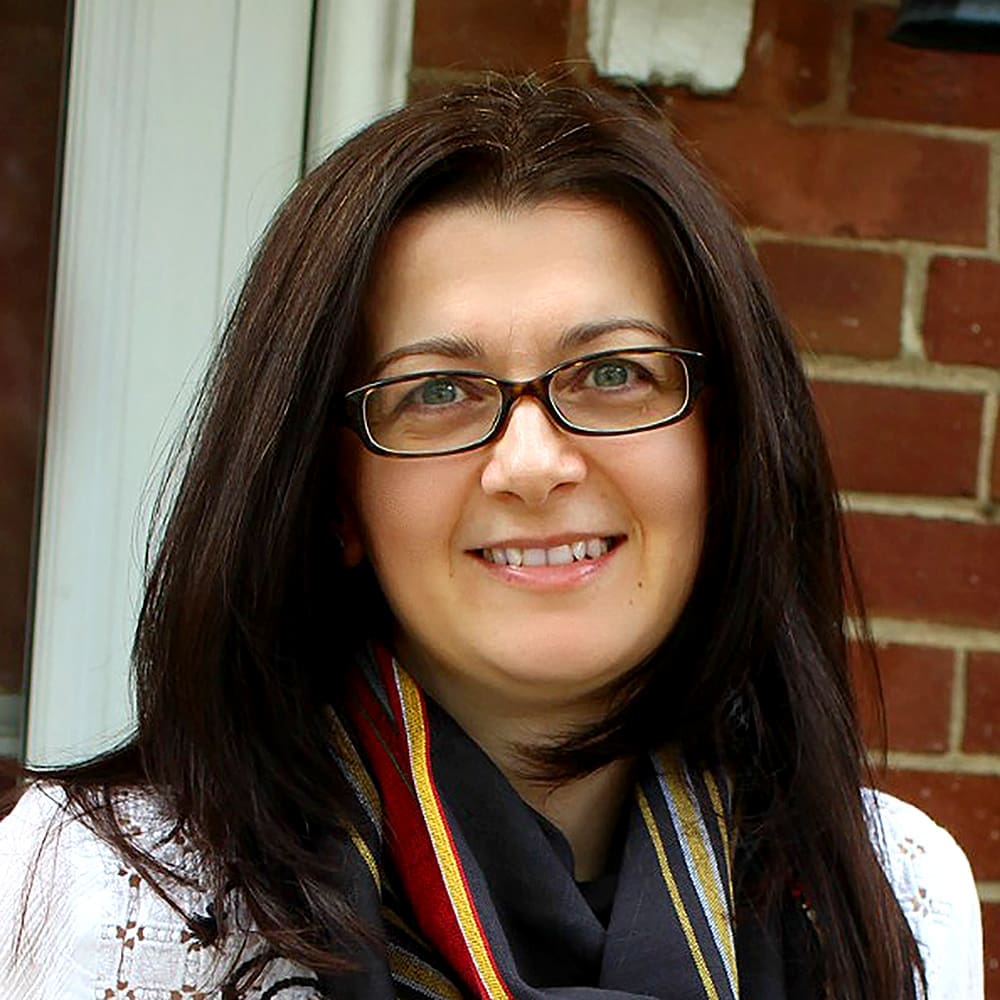M
My family and I survived a war. Our storytelling always falls on either side of the great divide: before or after the war.
Some years have passed since the war in Croatia and Bosnia, and yet that war has become as much a part of our life as anything else that has formed us: loves and losses, joys and sorrows, goodbyes and hellos. It can seem like only a memory. Except that it is not.
When the war in Ukraine slowly crept up and then exploded one week ago, I was instantly overwhelmed by a flood of memories. The high-pitched noise of an incoming missile. The air-raid sirens. The feeling of helplessness at the sound of a low-flying fighter plane. Hiding in the basement during bombing. Our family fleeing and becoming refugees. The fear. The unknown. The chaos.
But trauma is not just a memory; it is also a reaction. My body has gone back in time in recent days: the knot in the stomach, the urge to vomit, the burst of tears, the muscle tensing at a sudden noise, the heart-rate increase at the sound of a plane. I appear to be sitting in my Virginia home, peaceful, quiet. But I am not here. I am in Croatia, and it is the 1990s. I am also in Ukraine, and it is 2022.
I am sheltering in a basement with my mom Mira, dad Vlado, and sister Danijela. It is the middle of war in Croatia. But splicing into the scene is Ukraine, today’s Ukraine. I am transported to Kyiv from across an ocean, sheltering with my dear friend Alyona in a basement while her husband Dima and their four children—Daniela, Mark, Luka, and Emilia—huddle too.
It was just weeks ago that I told my fellow art-history students at George Mason University, “I can tell you my war stories some other time!” We all laughed. I didn’t anticipate that within days I would be sharing my war experience in frantic texts to my friend Alyona, giving her advice about gathering supplies, sheltering in a basement, and fleeing fighting and a possible military occupation.
As I write this, Alyona and her family are making their way toward the Hungarian border. Her mom Valentina chose to stay in their home just outside Kyiv. Thanks to mobile phones, we can stay in touch. I am coordinating friends who have offered assistance in helping Alyona and family flee the war. If they make it across the border and are allowed into Hungary, they might continue on to Croatia. That would be good news: my parents, my sister, and her husband are preparing to welcome Alyona and her family into their homes.

Photo: Markus Spiske
To my neighbours it looks like I am sitting at my desk in Virginia. But I am actually in a car somewhere in western Ukraine, trying to get to safety. My mind goes back to family scenes in my childhood home in Croatia, a house we had to leave when we fled and became refugees. It is a home that might now welcome another family who is just beginning their refugee journey.
But my neighbours are not wrong. I am also sitting at my desk in Virginia, answering text messages from family and friends all over the world. They are asking about me, my family, and Alyona—offering prayers, money, a network of connections. They want to know. They listen and they care.
I am in all of this at once, in the middle of a swirling vortex. War, its emotions and its memories, have become almost tangible shapes floating around me. I feel as though I could reach and touch them. I am typing furiously. My fingers cramp from texting. The phone keeps beeping and ringing. News cycles update and buzz with fresh alerts; I turn them off. Anger and fear surge. I sit in silence. Tears flow.
But healed scars are not bursting open. Roots of hard-won peace push deeper into its source. The anchor holds. A psalm still lends its words to my lament. A burst of joy cuts through the pain. Beauty takes my breath away. Generosity, kindness, and care soothe the heart. God is present.
It is war. And it is also peace.
What is war? What is peace? I keep asking if they are mutually exclusive as I am thrust back into the dramatic commingling of humanity’s paradox. Does one exist only when the other does not?
Life is not neatly divided into separate segments. Life is a convoluted pattern of sorrow, joy, anger, conflict, resolutions, tensions, kindness, fear, love, generosity, conceit, forgiveness, hatred, pain, healing, chaos, clarity. And God’s presence. Always, God’s presence.
All this weaves an intricate pattern of life. This is true about life in a time of peace. It is also true about life in a time of war. The difference is that, in war, the components become extremely exaggerated and exposed. The colossal fear that envelops the mood of war can so overwhelm that we become paralyzed, or ignite previously unimaginable actions. Anger explodes and cannot be contained. Pain transforms into uncontrollable hatred. Reason is overtaken by unchecked emotions. All these seem to morph into a giant unstoppable fireball of evil.
Right before the attack on our small town, many of our neighbours secretly left without warning us about the impending military action. These were the neighbours my sister and I played with daily. We went to the same school. My mom drank Turkish coffee with these friends most mornings. My dad shared his tools. We even went to church with some of them.
But they did not warn us. It was the air-raid sirens the next morning that did. As the war unravelled, brutal and vigilante-style killings were committed—by both sides. One of our neighbours was killed by a group of his work colleagues who showed up at his door. A close friend of mine only recently shared with me how one day a group of soldiers came into the retirement home where she was working and beat every elderly person who belonged to a certain ethnic group. Previously unimaginable actions. Now fuelled by fear. Anger and hatred exaggerated and exposed.
And yet joy, kindness, and generosity also get amplified. Love transforms from an ethereal concept into incarnation and action: defending, protecting, sacrificing, giving. Stranger still, in wartime, love can become so embodied that it is indistinguishable from the pain and tears on suffering human faces. Virtue itself purifies to a crystalline shimmer, defying the ashes of destruction and loss.
At the very beginning of the war in Croatia, my dad’s quiet and steady ways of loving us steadily grew into incredible acts of bravery. He was at work in a neighbouring town when the attack on our hometown happened. Despite the advice of the Croatian military, he entered our town and forged his way to our house. We all gathered, and it was decided that my dad would first drive our elderly neighbour to a hospital as she urgently needed kidney dialyses. Then the next day he did it again; this time he drove my mom, my sister, and me out of our occupied town to safety. During the four years of being refugees, and despite moving six times and enduring profound personal loss and hardship, my parents turned to serving others: unloading, sorting, and distributing thousands of pounds of humanitarian aid; counselling and hosting people; sharing their limited resources with others. In the midst of it all, they continued trusting God. Even when tears flowed.
The truth is that all the elements of life that mushroom wildly in times of war are the very same ones we experience in times of peace. War is not as distant, incomprehensible, and otherworldly as many of us who have not experienced it on our own soil think. We can go beyond listening, and intuit what war is like, because we already know the raw material. We are made of that material. It is inside us. Here. Today.
War is not as distant, incomprehensible, and otherworldly as many of us who have not experienced it on our own soil think.
If we do not understand this baseline of human reality, we will see those enduring the horrors of war as other than us—unrelatable, perhaps even fearsome in what they have suffered. We might admire their bravery and resilience; we might be saddened by their grief and pain. We might covet the wisdom and depth they seem to have acquired along with their battle scars. But we will still see them as other—a group whose profound but unfathomable encounter with life and death separates and estranges them from us.
This does not have to be so. We must comprehend the mystery of opposites coexisting in the same moment, in the same sacred space. Joy and sorrow. Pain and healing. Grief and hope. Life and death.
The presence of war does not exclude the presence of peace, nor does the presence of peace exclude the presence of war. The nutrients in the soil of our societies and our own souls can be grossly imbalanced at times, yet they always coexist. It is why, miraculously, one can be at peace while in the middle of a war. And it is why a seed of war is never fully absent during a time of peace. Until God’s kingdom comes.
After a gruelling two-day passage this week, my friend Alyona and her family made it out of Ukraine and are now safely resting with friends in Budapest while contemplating their next steps. It was a herculean effort on their part, supported by a network of family and friends from all over the world. Even my little strand of this net of care consisted of people from the US, Japan, Tunisia, Croatia, Poland, Germany, and Hungary. Other Ukrainians are still fleeing, and now Alyona and Dima are coordinating efforts to assist them. Alyona’s mom Valentina remains in their house on the outskirts of Kyiv. She says the mayhem of explosions has been steadily increasing.
Our band of sisters and brothers has come up for air today. A welcome reprieve. Alyona and family are safe, warm, together. Now the long part of the journey begins. The war. The refugee life. It will be a season of being stripped bare.
When my family and I became refugees, we did not immediately know it. When we decided to leave our home that sunny and warm September day during a military attack on our town, we did not know this date was going to become our refugee anniversary. When we waited for the tanks, troops, and armoured vehicles to drive past our house so we could jump into our car and drive out of our lovely, picturesque town, we did not know we were leaving our home for four years. When we hastily packed our backpacks, we did not think to bring all our memorabilia or valuables. We did, for some unknown reason, grab our umbrellas.
We made it out safely, convinced that God must have temporarily made our bright orange Škoda invisible to the snipers. Friends welcomed us into their homes. The grandma of the first family we stayed with gave up her room. All four of us, exhausted but grateful, crashed into that one bed—until the air-raid sirens woke us up and we joined our generous hosts in running across the street into a neighbour’s basement shelter.
The season of being stripped bare had begun for my family. For my community. And for my whole country.
One of my Croatian friends said it well in her text message while we were checking on each other’s emotional welfare as our own war traumas re-emerged during the beginning of this war in Ukraine: “Life narrows drastically in these circumstances—only basics matter now really—warmth, food, mere survival.” I replied, “Yes, the great stripping has begun . . . the bare-branches way of living . . . time to grow even deeper roots.”
War is a season of an intense stripping down; it is a time of revealing what it is that upholds us. Alyona and her family have stepped into that process. All Ukrainians are in the middle of it. The stripping down that war and refugee status bring is harrowing, fierce, and swift. It is also prolonged.
War is a season of an intense stripping down; it is a time of revealing what it is that upholds us.
We were like trees in late autumn. Our leaves, flowers, and fruit had fallen off, and only the bare branches remained. We were stripped down. The trunk and the bare branches became visible. What had been upholding us was revealed. And day by day, step by step, that proved to be enough. God and his presence. Each other. A band of sisters and brothers caring for us.
This process of stripping is not unique to war. War intensifies it and makes it more visible, but being stripped bare is a part of life. Even life in peace.
A dear friend recently told me about the challenges she has been facing in her relationship with her daughter. During this season of tensions and life-altering challenges, she dedicated herself to honest personal growth, seeking God’s healing, and accepting help from her community. My friend said, “I was stripped bare! Culturally imposed false beliefs were exposed. Personal issues were revealed. It was painful.” And then she proceeded to tell me how that season of being stripped bare had led to a beautiful new season of greater understanding, growth, and a flourishing relationship.
If we do not face our own bareness and vulnerability, we will see refugees as other than us. If, however, we embrace our own bare branches, we will experience the agony that comes with it, but also the healing and rootedness this painful stripping can catalyze. We will enter into a kinship with those we first deemed other.
This kinship is not capable of minimizing the horrific sufferings of those who have lived through a war, nor of becoming a refugee. Reality stands on its own. But it will draw us closer to their human experience and help us engage them and act in ways that show our love for them. This is what we are called to. When we are stripped of all the colourful leaves adorning us, when the harsh, cold weather has taken its leafy toll, it will be revealed where our true strength and beauty lie—in the God who upholds us. And our response can only be resolute and resounding: we must love the Lord our God with all our heart and with all our soul and with all our mind and with all our strength and love our neighbours as ourselves (Mark 12:30–31).
War in Ukraine rages on. Other wars do as well. My friend is a refugee. Tears flow. The peace that surpasses all understanding keeps guarding my heart and mind. The anchor holds. Beautiful, intricately woven patterns of bare branches still take my breath away. My roots keep pushing deeper. God is present and faithful. He upholds. I take a small step. Toward my neighbours, not away from them.



